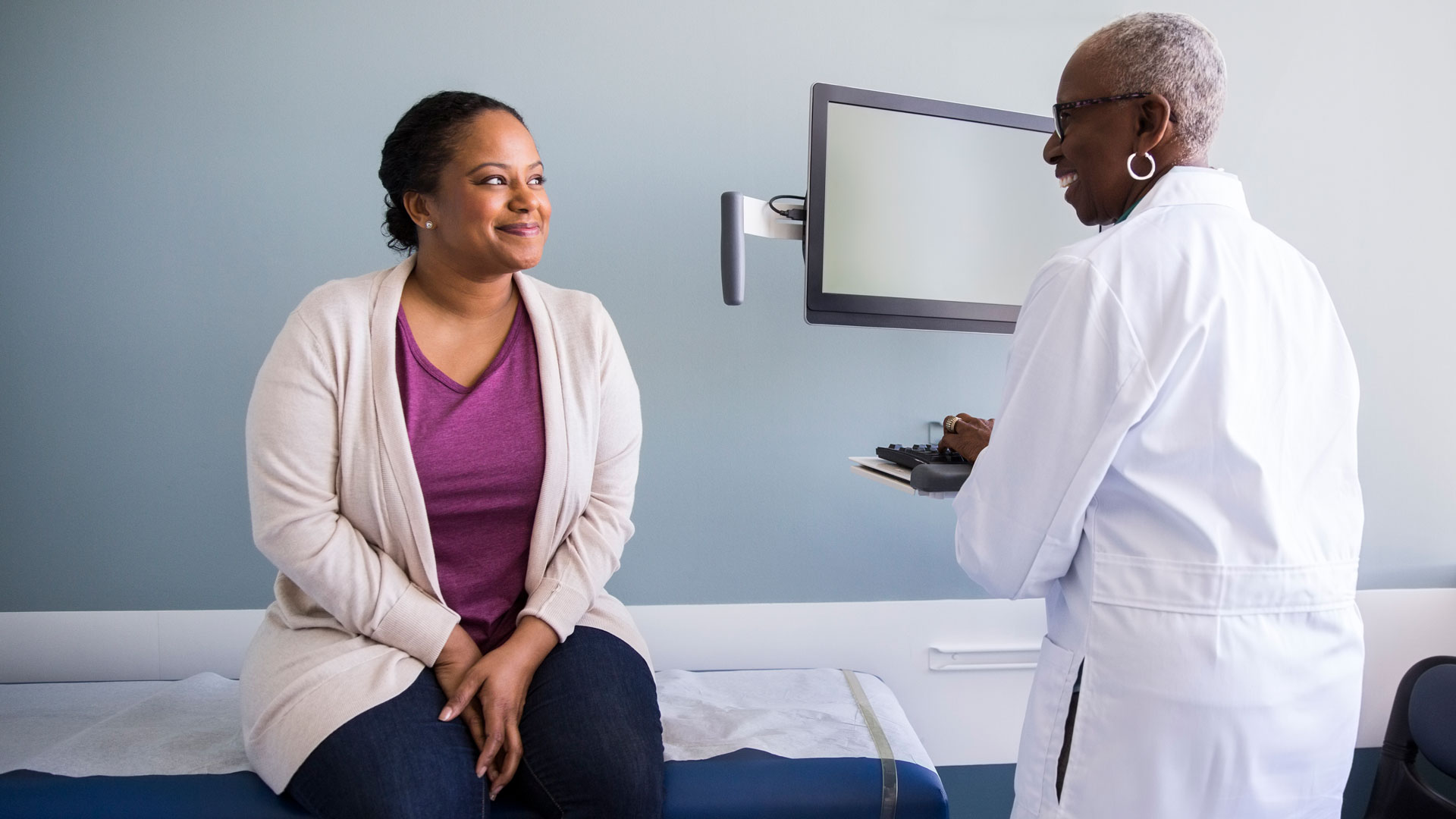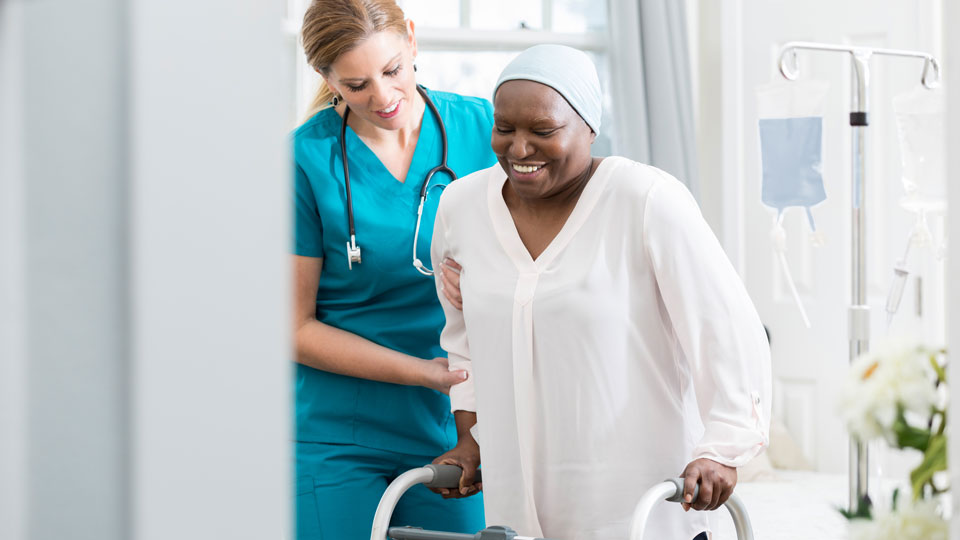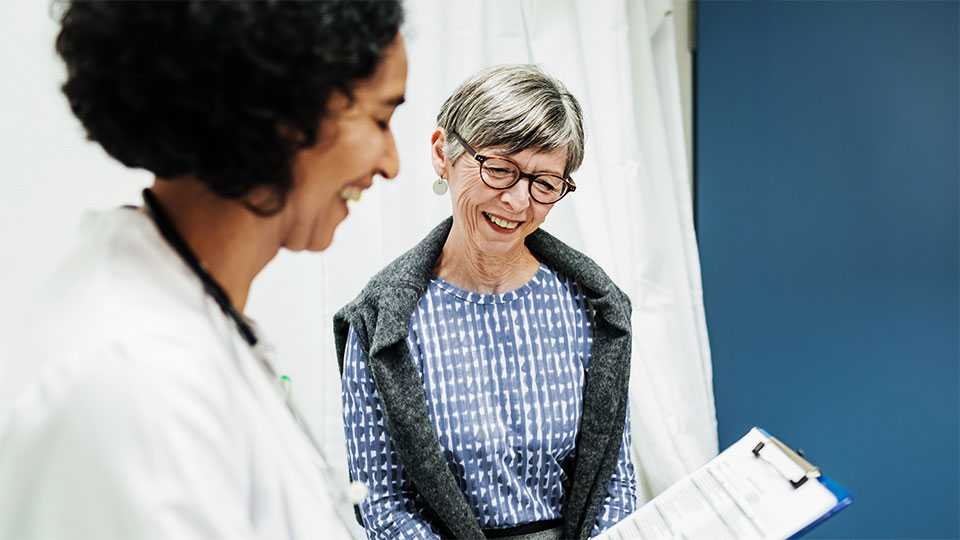Lung cancer question guide
We are here to help answer any questions you may have. We recognize that a lung cancer journey comes with a lot of unknowns. We believe that asking questions is the best way for you to understand your diagnosis and learn more about your treatment – because questions lead to conversations, which will help us better understand how you’re feeling and how to best treat and care for you.
Your providers are your best guides to navigating care and finding you the right people who can better answer all your questions.
See how a patient like you got through their lung cancer diagnosis and journey.

We’re here to help you get the conversation started.
A lung cancer diagnosis raises a lot of questions. But sometimes you may not know what to ask. We’ve put together some suggestions to help you get the conversation started with your provider:
- Can you explain the specific type of lung cancer I have been diagnosed with?
Are there any additional tests or scans that need to be done to gather more information about my condition?
What treatment options do you recommend and why?
What are the pros and cons of each treatment option?
Who will be coordinating my care?
How long will my treatment last?
- What will recovery look like for me?
What happens if the treatment is not going well? How would I know what’s going on?
What screenings will I need after recovery?
What does it mean if I received a lung cancer diagnosis without a history of smoking?
Are there any support services available to me during and after treatment? Are there any support groups or counseling services for lung cancer patients?
Financials, transportation, and lodging:
- What is the cost of care and what are my payment options?
How much time will I have to take off work for treatment and recovery?
- What if I don’t have a way to get to and from my appointments?
What if I need lodging support because my treatment location is too far from where I live?
Sharing the news:
- Do I have to share my diagnosis with my employer?
How do I share this information with my loved ones?
How this diagnosis will impact my life:
- Will I need to arrange childcare?
How can I make sure that I stay mentally healthy throughout this process?
- What changes will I need to make to stay healthy?
Are there any other impacts this diagnosis may have on my life?
Who do I contact:
- Who should I call if I have more questions?
Please consider these questions as just a starting point. We know there will be others and we are here to answer them all.
Getting a second opinion
We know that sometimes you may not agree with your diagnosis or treatment or may just want to hear a second opinion. This is perfectly okay. Just tell your Nurse Navigator and they will make arrangements for you.
What happens after your lung cancer diagnosis.
When it comes to treating lung cancer, we are committed to providing you a team of experts to give you care. Our multispecialty team can select specialists, including a nurse navigator, social worker, genetics counselor, medical oncologist, surgeon, and radiation oncologist to create your care team. If you need other kinds of doctors too, we will make sure that they are a part of your care.

Your care program
Support Throughout Your Journey
No matter where you are in your journey, there are many ways we can help and support you.

